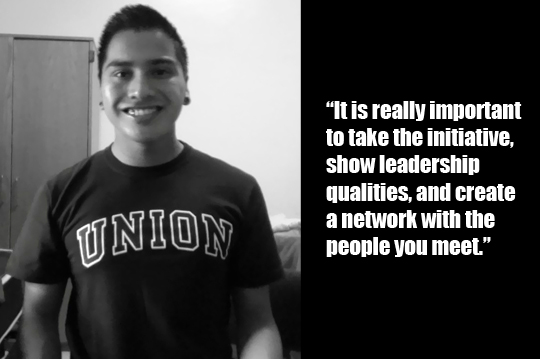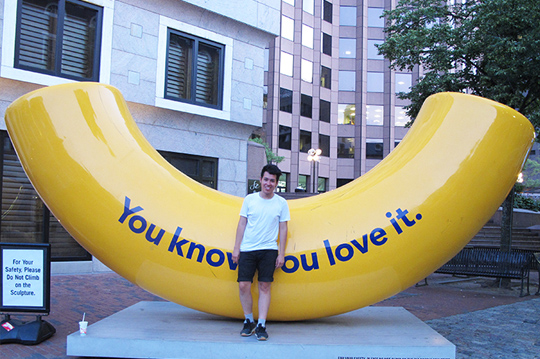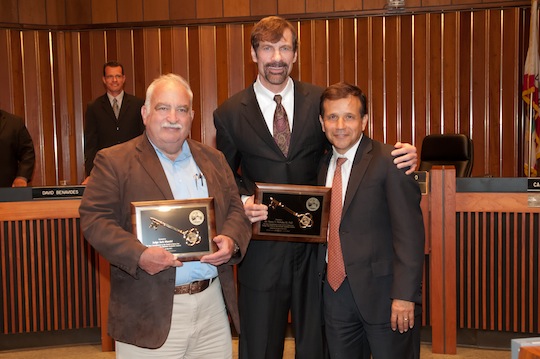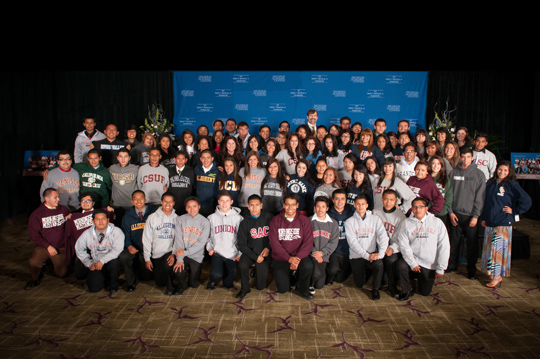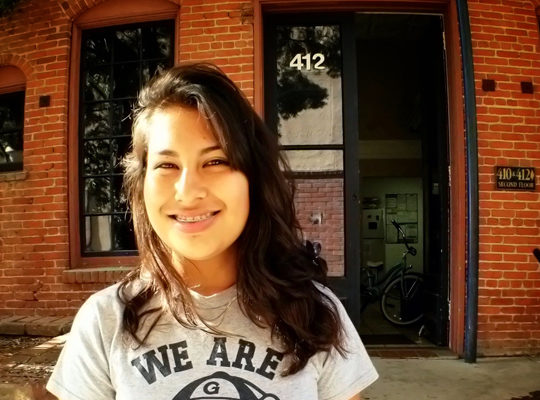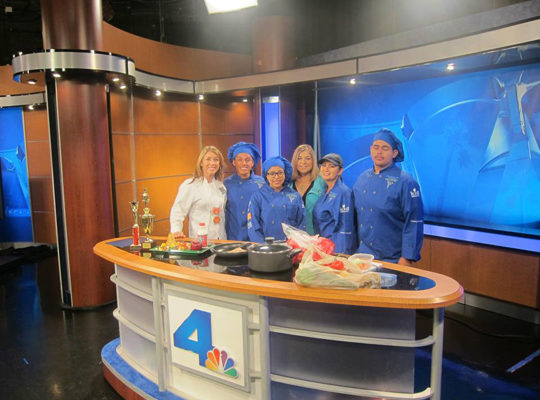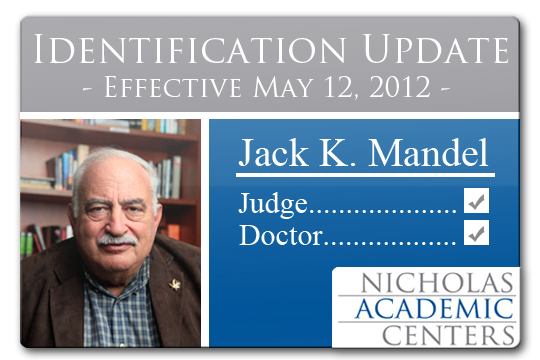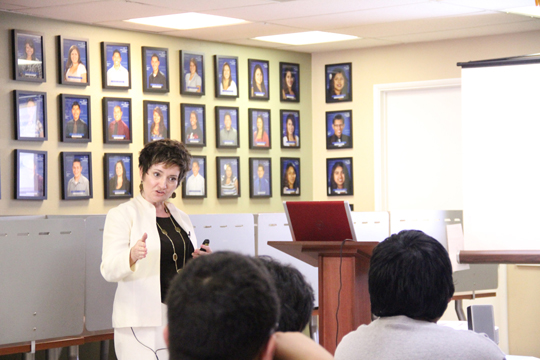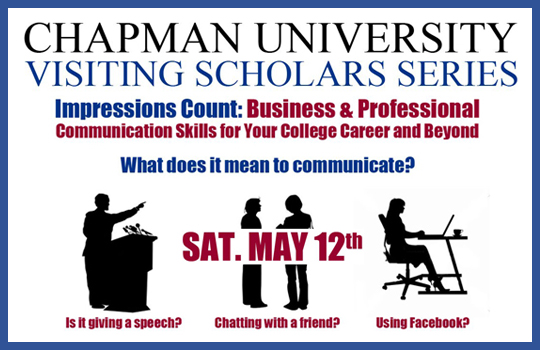From Humboldt to Hampshire to Harvard with Class of 2009 Alum Javier Robles
Mayor Miguel A. Pulido Presents NAC Co-Founders Keys to the City of Santa Ana
Super Smart with a Helping Heart: 2010 NAC Alum Ivonne Huitron
What the Letters on the Sweaters Really Say: A Look at the 4th Annual NAC Graduation Celebration
From Santa Ana to Georgetown with Class of 2010 NAC Alum Mariana Hernandez
Since the doors of NAC I opened in 2008, many students have passed through its halls. They come from different backgrounds and join for different reasons, but they are united in their purpose – their desire to overcome the odds and make college a reality. Most NAC students juggle an incredible amount of responsibilities and make sacrifices daily in pursuit of their educational goals. One such student, NAC alum Mariana Hernandez, did just that while earning the title of Valedictorian of Santa Ana High School in 2010. She managed to balance her class schedule with sports (Varsity Volleyball, Varsity Track and Field), clubs (MESA Club President, Mui Alpha Theta Match Society President, Go-Green Recycling Club President, California Scholastic Federation Vice President, Freshmen Mentor Program member, and Fellowship of Christian Athletes member), and afterschool programs (Nicholas Academic Centers, of course). Mariana’s hard work paid off when she gained admission to Georgetown University in Washington, D.C. What she has done at Georgetown is no less impressive than what she did during her time at the NAC.
NAC: When did you join the NAC?
Mariana: I joined the NAC several months after it opened. I can’t recall when exactly, but I have been a part of the NAC family for a while! I joined because my best friend Karla, who was one of the first students on opening day, dragged me to the NAC, and I thank her every time I can for doing that! Usually at the NAC, I would spend about 2-3 hours when I was a sophomore, but, during my junior and senior year, I would spend about 4 to 5 hours at the NAC. I was always on the very last van ride or sometimes my friends had to drive me home because we would stay longer for extra Calculus help with Danny, or of course who can forget those long SAT prep nights? I had to go to NAC II to take them because I played sports, so sometimes I would get home at 9pm!
NAC: Had you always wanted to attend college?
Mariana: College had always been my goal. Very early on in my life I realized that the only way to be somebody in this country was through a good education and that meant going to college. My dream when I was a little girl was to attend Harvard University and become a lawyer. As I got older I realized that so long as I prepared myself to be competitive for Harvard then even if I didn’t get in I would be satisfied. I ended up not getting into Harvard, but I like to think I ended up where I belonged.
NAC: So Georgetown has become your new dream school?
Mariana: It’s funny. I said Harvard was my dream school, and it was mainly because it was the only big name I knew when I was young. However, every time I pictured myself in college, I pictured a castle as a campus next to a river because I always fantasized being a princess. It turns out Harvard doesn’t really fit that particular description, but Georgetown does! It was meant to be! Georgetown University was not on my radar until my junior year in high school. A friend of mine had just been accepted and she fell in love with Georgetown. She was Valedictorian of the class ahead of me and she told me to look into the school and see how I liked it. At the time, I wanted to be a politician, and I was convinced that one day I was going to one day be President of the U.S. My huge passion for politics right away made me fall in love with the school. When I was accepted, I visited the campus for the first time, and looking up to Healy Hall and then turning left to the Potomac… right there and then I knew it was the place for me! Georgetown has made most of my dreams come true already, and it’s only the beginning.
NAC: Culturally, how is life at Georgetown different than life in Santa Ana? Does anything in particular come to mind?
Mariana: Georgetown is culturally very different than Santa Ana, and very different than California, period. In Santa Ana, being Hispanic is no big deal, and most importantly, being Mexican is no big deal. At Georgetown though, you have people from all over the world! Here being Hispanic is being a minority, and being Mexican is a bigger minority! There are Cubans, Puerto Ricans, Dominicans, Peruvians, Colombians, Venezuelans, etc. I had never met any Latinos other than Mexicans! So the Hispanic community itself on campus is very culturally different because we all have to adapt to a blend of Latino-ness. Aside from the totally different Latino community, it’s important to keep in mind that it is still a minority community. Most of my classmates are Caucasian, upper-middle class students, or plain and simply “wealthier-than-God” students. This was a bit shocking when I first arrived to campus because it blew my mind that in one of my classes I was sitting with Maria Shriver’s daughter, Christina, and in another I was sitting with the heiress to the Hyundai empire? Or that one of my friends, Luis Ro is the son of the Governor of Puerto Rico! How does this happen? How does a girl from little Santa Ana get to a place like this? Therefore, at Georgetown, it’s not that I hide who I am, it’s just that you have to get used to seeing boat shoes and salmon shorts everywhere, and sometimes, you just have to buy into the culture a little. I have always been proud of where I come from, and I like to tell everyone of how wonderful and inspiring my city is, but at the same time certain things that I was used to doing, I don’t do anymore. The perfect example I can think of is speaking Spanglish; this is very common in Santa Ana, but here at Georgetown, not only is your Hispanic heritage questioned when you do this, but also your American heritage. So, I no longer do this.
NAC: What activities are you involved in on campus (clubs, volunteering, etc.)?
Mariana: On campus I am also very involved! I have lived in a living learning community for the past two years called Justice Diversity and Action, where each year we fundraise money for different charities nationally and internationally. I have also been a coordinator for the HOYA SAXA Weekend committee that partners with the admissions office to bring students of minority backgrounds to campus, like when I was invited. I am also a board member for the largest Latino showcase on campus, “Reventon Latino”, in which we celebrate Latino heritage on campus, and all of the D.C. community is also invited. I am also on the Latino Dance team, “Ritmo y Sabor”, which is a very prestigious dance group among the east coast universities. I dance salsa, merengue, bachata, samba, and tango. I have a lot of fun doing this! Finally, the one thing that I am heavily involved on campus is working with the Georgetown Scholarship Fund. This last semester I was selected to be a part of the 5 person executive board that will oversee activities and opportunities for all 350 scholarship recipients of the program, including the newest class members of 2016. On the board, I am the media strategy chair, and I oversee two other committee members to help me maintain strong communications between alumni donors, parents, and students. This Scholarship program also runs a summer pre-orientation program that I was fortunate enough to attend to when I was an incoming freshman. Last year, as a sophomore, I was fortunate to become one of the 16 mentors for the program, and this year I was even more fortunate to be selected as a coordinator for the program! Therefore, starting this last February, I began working on the summer pre-orientation program called Prepare to Excel that brings about 45 incoming freshmen to Georgetown and really exposes them to Georgetown’s fast-paced lifestyle before the school year actually begins. Finally, one the best things that I have done at Georgetown, in my opinion, is becoming a John Carroll Fellow. This Fellowship is very prestigious on campus, and it has challenged me to expand my undergraduate research abilities. Currently, I am working on a research paper for a professor on the effects that climate change has on food security of the women of the Wayuu tribe in La Guajira, Colombia.
NAC: What do you do when you’re not studying?
Mariana: Well, when I am not studying I do everything else! Just kidding. I love to run and listen to music! I usually take about an hour to two hours of my day everyday to run and go to the gym. Staying healthy is a very big thing for me and a lot of my peers on campus, and I enjoy it because we are able to release some stress as well! On the weekends, I teach SAT Prep for Math and English, and I assist a sophomore English class every Saturday morning. So, from 8-2 I am at the Myers Institute of College Preparatory, which reminds me a lot of the NAC; I think that’s why I secretly love working there! This is like a continuation program that reinforces all the subjects students learn during the week at their public high school, while also offering SAT Prep, college tours and study abroad opportunities during the summer. On weekend nights I like to sleep or catch up on movies. Sundays are all about doing schoolwork and going to Catholic Mass, another huge thing to do on campus.
NAC: Any standout moments from your time at Georgetown (special lectures, guests, sightseeing, etc.)?
Mariana: Wow! Too many to count! I don’t even know where to start. I have met President Obama, Former President Clinton, Secretary of State Hilary Clinton, VP Joe Bidden (who was at our Mass, randomly), Prince Charles, Former President Uribe from Colombia, President Moncef Marzouki from Tunisia during the Arab Spring, Former Mexican President Ernesto Zedillo (this was a great moment, according to my mom, when she saw the pictures of us talking and meeting), and 2012 Mexican Presidential Candidate, Enrique Pena Nieto. But perhaps two days that will be forever engrained in my mind will be the day when I personally met Senator Dick Durbin from Illinois, who is also known by DREAMERs as “Papa Durbin” for being one of the writers and sponsors of the DREAM Act. And the second day is the day that they announced Osama Bin Laden had been captured and killed. I remember it was a Sunday and everyone was at the library; suddenly, the entire building went silent and all Macs were on the same web page, listening. Within seconds, the library was cleared and everyone was running to the White House! I have never been a part of such a patriotic moment in American History. The next day, I was interviewed for BBC news! This was the highlight of my G-town experience, and I was only a freshman!
NAC: What challenges have you faced while attending Georgetown?
Mariana: Adjusting to the culture has definitely been rough, but I think I do a good job at masking this transitional period. Also, keeping up with my grades and GPA is rough. It’s hard for everyone though. We all come to Georgetown being Valedictorians, Salutatorians, or on the top ten, and we expect to be the on the same level here. Sadly, as our President told us, that is not the case. Over a thousand of us will be inevitably disappointed. Therefore, accepting the fact that I am no longer #1 is hard and accepting that I don’t necessarily have to be #1 to succeed is also rough. However, I think over the past two years I have learned that although my education has been amazing, who I am and my success are no longer just measured by my GPA but by the fires I spark around me. Georgetown has taught me the importance of being a woman for others, and not just a woman for me.
NAC: Any upcoming items of interest planned in your school/professional career, such as internships, etc.?
Mariana: Yes! I am currently back on campus and will be interning with our Congresswoman Loretta Sanchez. I am also doing research for a new start up company in NYC called “Three Ring” that has designed a new app for Apple that is for educational purposes for parents, teachers, and students. I wouldn’t be surprised if the NAC is soon using it. I will be traveling by bus on the weekends to NYC. It’s going to be tough, but I am excited! On the side, I am also taking a summer class and preparing all the plans for the Preparing to Excel Pre-Orientation program that I am coordinating with another student. Hopefully, after all this is done, I will be back home for three weeks to just sleep before the new school year begins!
NAC: Any advice you’d like to give current NAC students?
Mariana: I want to tell all the NAC students that as cheesy as it may sound, never give up on your dreams! So many people told me people like me would never go to college, and, well, look where I am now. Once I got to college, someone told me I would never be a leader on the Georgetown campus because of who I am and where I come from, and, well, I am a board member of about four different important programs on campus! Anything is seriously possible if you want it and are willing to work hard enough for it. I am not going to lie and tell you all it’s easy; it’s not. I lose a lot of sleep. I sometimes cry because I want to give up. I have felt what “feeling lonely in a sea of people” is all about. I have had to leave my family, my friends, my beautiful California and so much more to pursue my dreams, but leaving the people and the things I love behind does not mean I don’t love them or that they don’t love me. It just makes us appreciate each other more and it makes our love stronger. I know they wait for my return because I will return! And well, the things and the people that you do lose during the process, you learn were probably never yours in the first place. I have also failed and had to start all over again, but that is the beauty of life, knowing you can always start again even after you have failed. You just have to get back up and try again. Life, as I have learned so far, is a never-ending game. Even when you think you know how to play it, it always comes back to surprise you!
NAC Senior Ashley Blanco & Her Team Win the National “Cooking Up Change” Competition in D.C.
Walking the (Graduation) Walk Again: Judge Jack K. Mandel is Dr. Mandel Now
12 years after retiring from the bench, Judge Jack K. Mandel donned the robe once more. Unlike the robe he wore during his 19 years as a Superior Court Judge, however, this robe was of the graduating kind.
On Saturday, May 12, the Hon. Jack K. Mandel received an honorary Doctor of Humane Letters degree from his new alma mater, Morningside College in Sioux City, Iowa. Morningside recognized Judge Mandel with the honorary degree for his work with high school students in Santa Ana, California. During the commencement, Dr. Mandel spoke to more than 250 graduates on the campus lawn in front of the Hickman-Johnson-Furrow Learning Center. In his speech, Dr. Mandel thanked the board of trustees & the President of Morningside College, his wife Judy for her full-time support, and Dr. Nicholas for his passion & generosity. “Because of what Dr. Nicholas has provided,” said the Judge, “[NAC students] will play a prominent role in their community for the next 40 years; they are tomorrow’s leaders.”
Ten Santa Ana-area high school graduates who were part of the NAC are enrolled at Morningside College with several more to join this fall. Each of their journeys represents a page in the ongoing NAC story.
The story of the NAC, though, begins with the story of the Honorable Jack K. Mandel, and a group of students since dubbed the “Judge’s Kids.” Years ago, the Judge saw a need – students without a proper place to study, minimal guidance, and extremely limited resources to make college much more than a faint dream – and he took action.
Every day, after concluding his court cases at the Orange County Courthouse, Judge Mandel spent his time tutoring and mentoring students in the library of Santa Ana High School. At 7:00 PM, when it was time to close the library, the Judge treated students to a ride in his Jaguar, and he drove them home. He also spent time with his “kids” on weekends, often taking them canoeing around Balboa Island in a canoe named “Fred”.
The “Judge’s Kids” thrived with help and support from Judge Mandel, guidance counselors, and a network of colleges. The Judge’s actions caught the attention of Dr. Henry T. Nicholas, III, and the Nicholas Academic Centers was born. In addition to Judge Mandel’s illustrious career as a trial lawyer and Superior Court Judge, his work as a mentor, co-founder and now chairman of the board for the Nicholas Academic Centers has earned him a new title: Doctor.
Congratulations, Judge/Dr. Mandel.
Dr. Jennifer H. Waldeck Speaks the Truth to NAC Students About Communication
In the last lecture of the Chapman Visiting Scholars Series for the school year, Dr. Jennifer Waldeck stressed the importance of being able to communicate willingly and effectively with the Nicholas Academic Centers’ students. Dr. Waldeck, Associate Professor of Communication Studies at Chapman University, used the concepts from her co-authored book, Business and Professional Communication in a Digital Age to examine the role communication plays in people’s everyday lives.
According to Dr. Waldeck, “Our willingness to grow as a communicator in all kinds of settings, even the ones outside our comfort zone, can help us in incredible ways.” Using “The Simultaneous Transactions Model of Communication,” she noted that a number of factors influence the ways people communicate, including physical surroundings, organizational culture, and social relationships. Hugo Gutierrez, NAC Executive Director, confirmed this by sharing with NAC students how he communicates in various settings with different groups: “There are many different angles I have to consider in my position here working with the organization. I engage with students and staff, and partners like Dr. Struppa and Dr. Waldeck, who come to visit, and funders. There’s a wide range of people I communicate with, and communication seems to be tailored to fit the audience.”
NAC students attending the lecture participated in a number of exercises designed by Dr. Waldeck to encourage people to pay closer attention to their audience and the ways in which they communicate. In one exercise, students sat with their backs to one another, and they struggled to communicate without using any visual cues. The students then faced their partners and found it much easier to have a conversation. NAC senior, Joe Serrano said, “It was hard to hear with our backs to one another, especially with so many people talking.” Dr. Waldeck noted that distractions like noise could impact people’s ability to communicate with their partners. She also mentioned that facial expressions and other body language could help listeners interpret what the speaker is saying and how he or she feels about it.
To further test the students’ ability to communicate, Dr. Waldeck challenged students to role-play, using specific words, tones, and gestures. When asked about the experience, NAC junior, Giovanni Hernandez stated, “It was interesting to see [the effects of] the tone you use… and I had to use body language to show whether I was interested or not.” Some of the students found it difficult to be convincing when saying things they did not mean. Cindy Ramirez, NAC sophomore, also participated in the role-playing exercise: “I was supposed to say something sincere, like ‘it’s nice to have you in our group,’ but it was kind of hard because I wasn’t really in that situation, and it was challenging for me to say it in a sincere way.”
Helping students recognize the importance of clear communication is just one of the methods the Nicholas Academic Centers use to prepare students for a collegiate environment.
Click HERE to watch the video.

